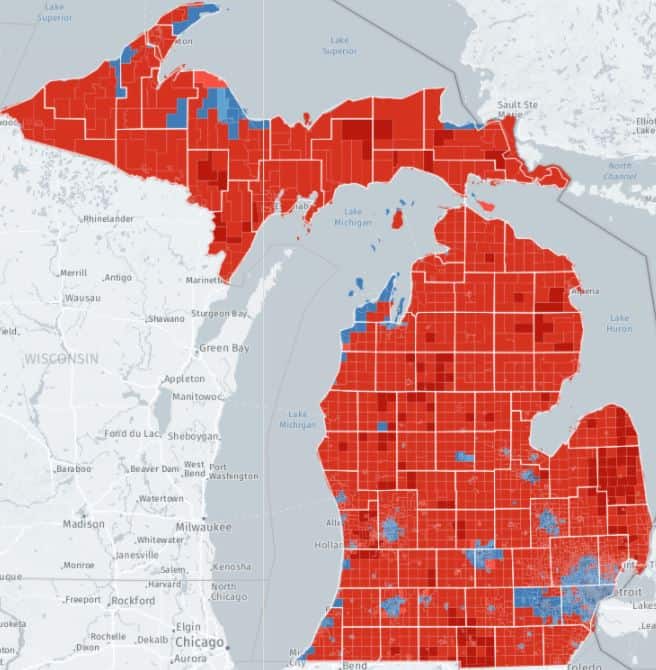LANSING – Tests now being used by some to evaluate whether congressional and legislative districts have been gerrymandered do show that Michigan fails several of those tests, which could argue that the state’s districts somewhat favor Republicans, a report from the Citizens Research Council of Michigan said.
The report came out as the U.S. Supreme Court has returned gerrymandering accusation cases to North Carolina and Texas, and a week after the court punted on two major gerrymander cases from Wisconsin and Maryland.
The report also comes as officials wait to see if Michigan’s Supreme Court will call for arguments or take other action in the matter of Voters Not Politicians, the organization spearheading a ballot initiative now on the November ballot to change the Constitution on how Michigan’s congressional and legislative district lines are drawn. The proposal would take the process out of the hands of the Legislature and give it to a citizens’ commission.
The Court of Appeals rejected an argument that the proposal was not an amendment but a rewrite of the Constitution and ordered the Board of State Canvassers to place the proposal on the ballot. The Supreme Court refused to issue a stay to the order that the provision go on the ballot. The Supreme Court could decide this week to uphold the Court of Appeals, order the proposal off the ballot or call for arguments on the matter.
Meanwhile, the CRC said using several tests that have been developed to measure the effectiveness of voting to ensure competitive districts shows some gerrymandering over the last two cycles in Michigan to create legislative lines.
“While each statistical measure has potential flaws and limitations, the efficiency gap, mean-median test, t-test and simulations of alternative maps for the state of Michigan all indicate the state has experienced at least a moderated level of gerrymandering over the last two cycles,” the report concluded.
Because the Supreme Court threw out the state’s redistricting system as initially written in the 1963 Constitution as unconstitutional federally, the state is only bound by federal guidelines, though in each redistricting effort since the 1980s the controlling individuals over redistricting have said they have used the guidelines set up in the 1980s by former elections director Bernard Apol.
Using the various tests when looking at actual election results in terms of who was elected in the various districts compared to total statewide votes for parties, the “scores show that Republicans are consistently advantaged by the maps, while Democrats have been consistently disadvantaged.”
In reaching its analysis, the report also said, however, that all the tests fail to account for how each party’s voters are distributed across the state, so it cannot show what would be abnormal scores from significant concentrations of Democratic votes in certain, predominately urban, areas and deliberate gerrymandering.
There has been one study, the report said, showing some of the bias in electoral results is because of population distribution, but it also shows that the most recent maps for Congress and the Legislature drawn in 2011 “still produced an advantage for Republicans.”
And, in a nod to the upcoming election, the CRC said, “It seems likely than another case will eventually force the (U.S. Supreme Court) to decide on the issue of partisan gerrymandering. Until then, Michiganders will have to evaluate what to do about gerrymandering without the federal court system.”
This story was provided by Gongwer News Service.







